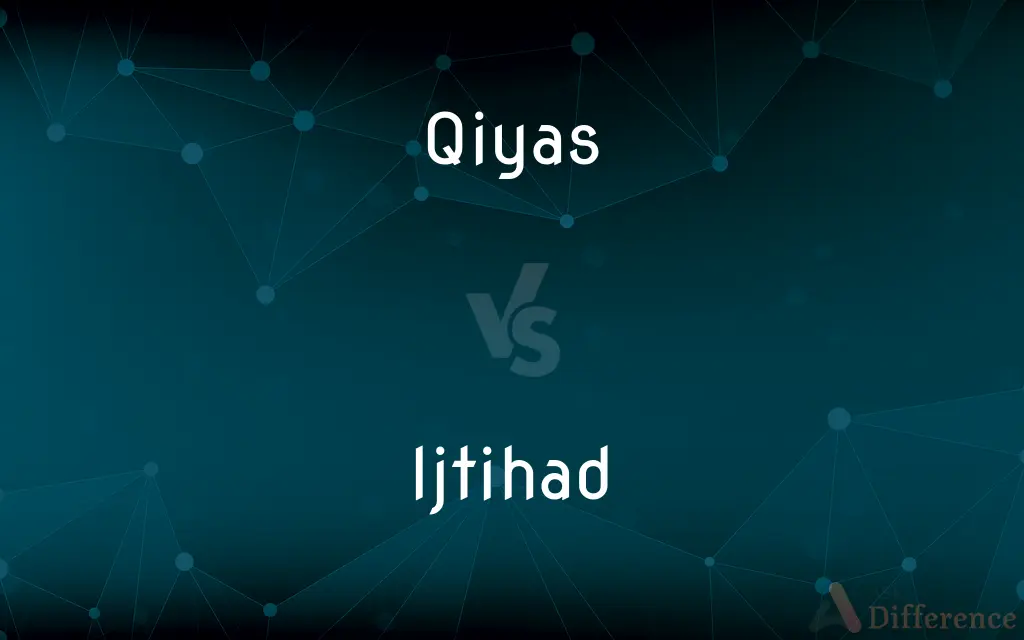Qiyas vs. Ijtihad — What's the Difference?

Difference Between Qiyas and Ijtihad
ADVERTISEMENT
Compare with Definitions
Qiyas
In Islamic jurisprudence, qiyās (Arabic: قياس) is the process of deductive analogy in which the teachings of the hadith are compared and contrasted with those of the Quran, in order to apply a known injunction (nass) to a new circumstance and create a new injunction. Here the ruling of the Sunnah and the Quran may be used as a means to solve or provide a response to a new problem that may arise.
Ijtihad
Ijtihad (Arabic: اجتهاد ijtihād, [ʔidʒ.tihaːd]; lit. physical or mental effort, expended in a particular activity) is an Islamic legal term referring to independent reasoning or the thorough exertion of a jurist's mental faculty in finding a solution to a legal question.
Qiyas
(Islam) The use of analogy as precedent in Shari'a jurisprudence.
Ijtihad
(Islam) The process of Muslim jurists or scholars making a legal or scientific judgment by independent reasoning from the Qur'an and the Sunna; discretion.
Ijtihad
The endeavor of a Moslem scholar to derive a rule of divine law from the Koran and Hadith without relying on the views of other scholars; by the end of the 10th century theologians decided that debate on such matters would be closed and Muslim theology and law were frozen;
Some reform-minded Islamic scholars believe that reopening itjihad is a prerequisite for the survival of Islam
ADVERTISEMENT
Share Your Discovery

Previous Comparison
Hieroglyphic vs. Rebus
Next Comparison
Empassioned vs. Impassioned














































